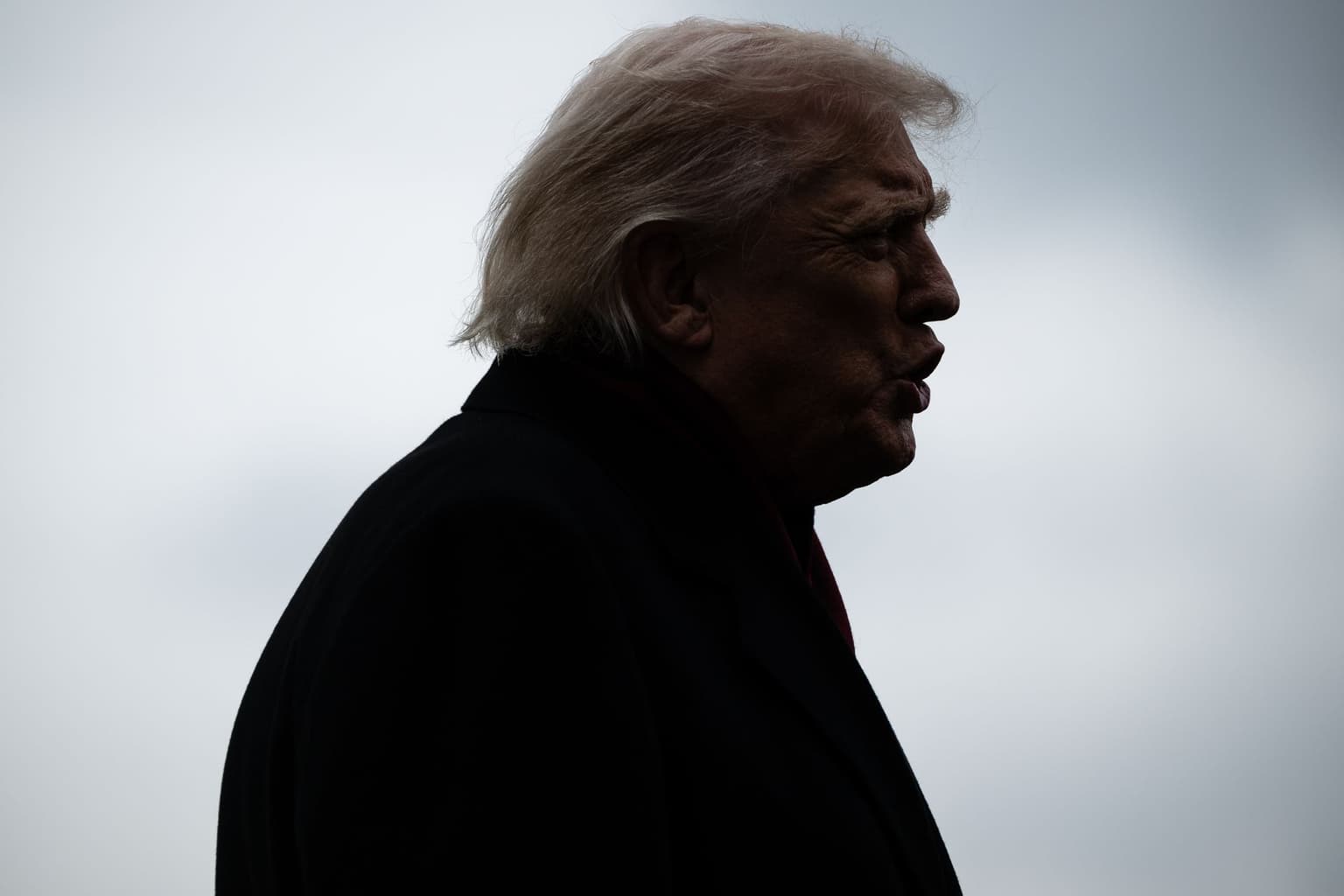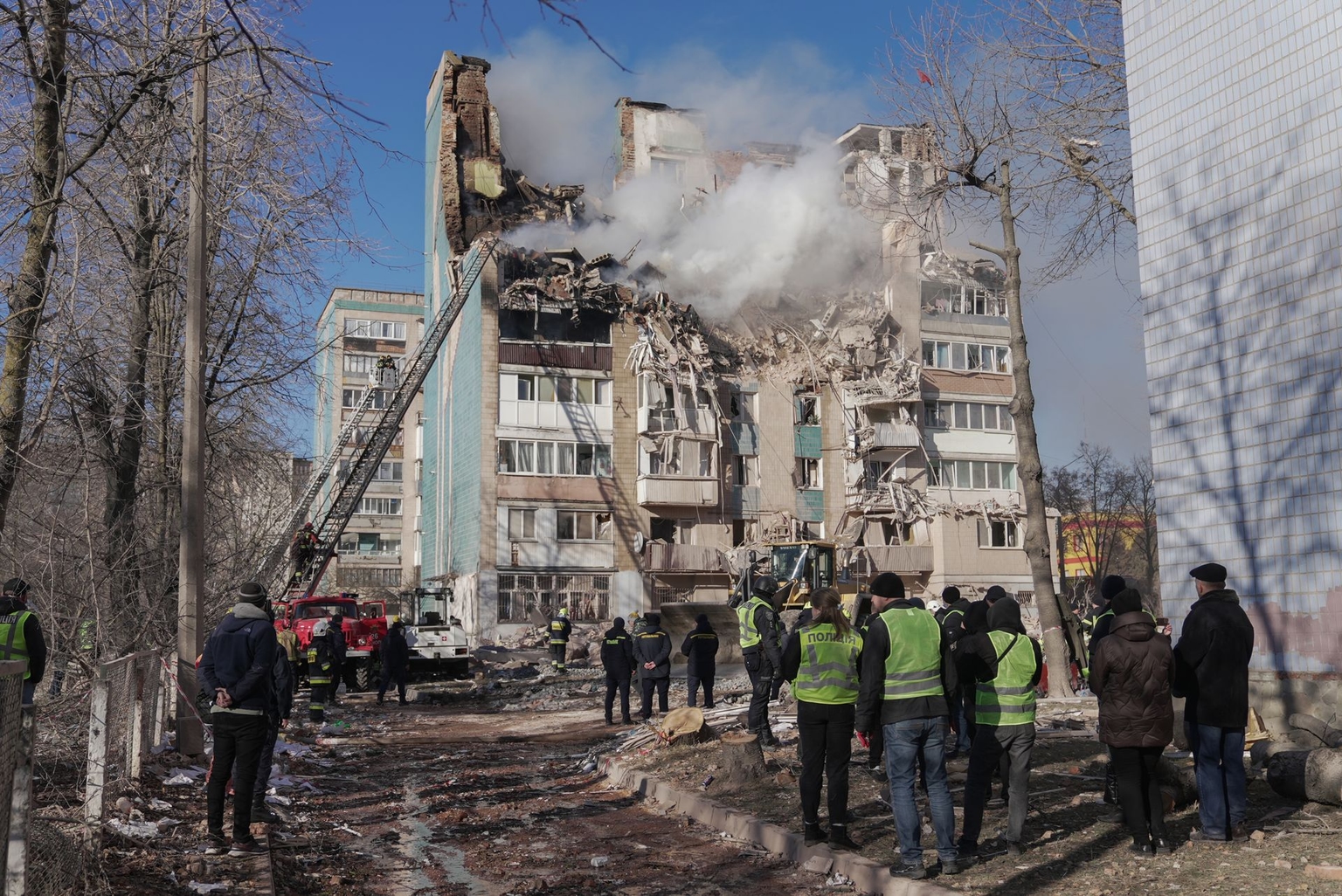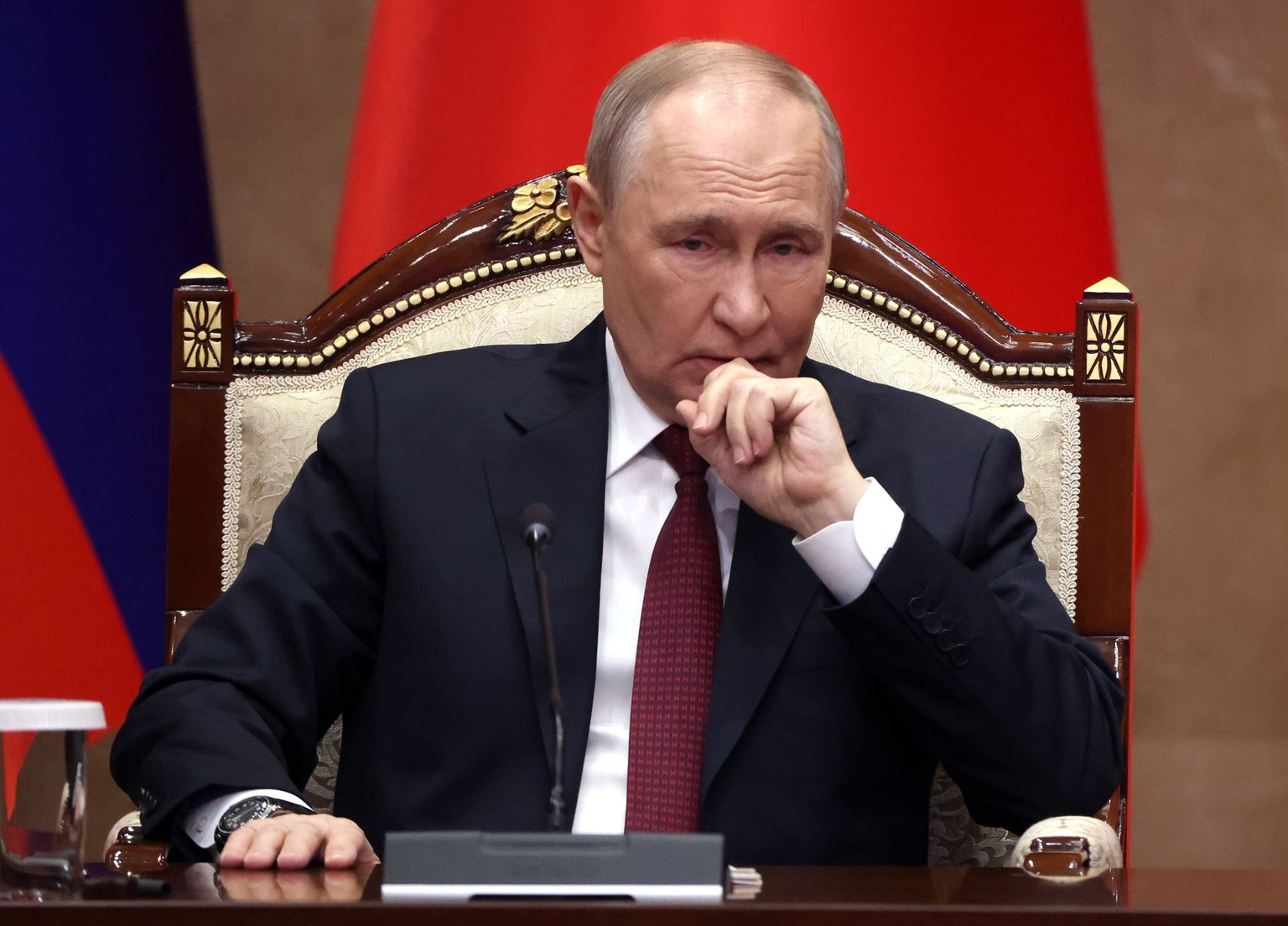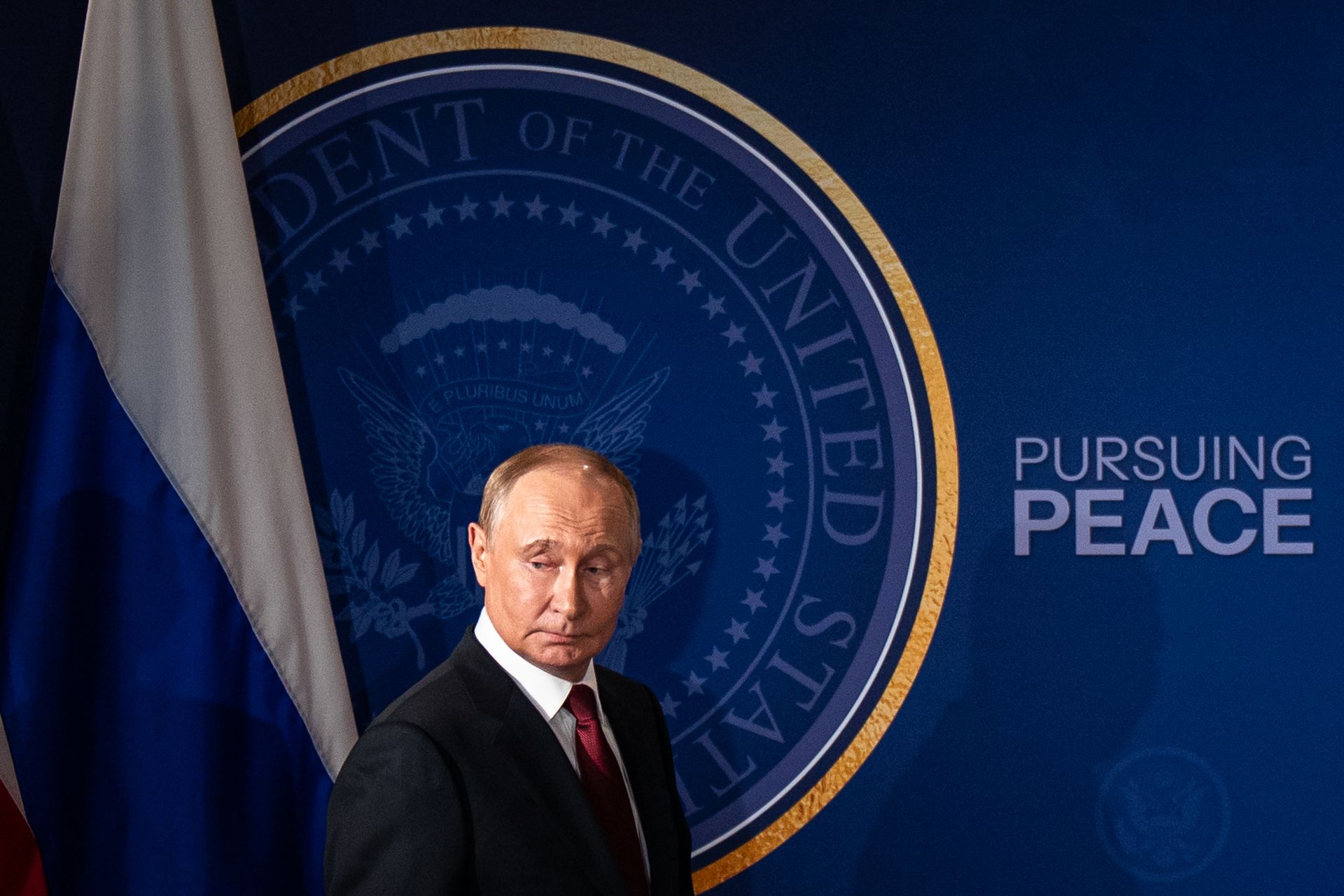The wrong way to peace in Ukraine

US President Donald Trump in Washington, D.C., U.S., on Nov. 22, 2025. (Graeme Sloan / Bloomberg / Getty Images)

Timothy Snyder
American author and historian
About the author: Timothy Snyder is an American author and historian who specializes in the history of Central and Eastern Europe and the Holocaust.
Last week, Russia attacked Ukrainian civilians with more than 500 drones, cruise missiles, and rockets. Most of these drones were shot down, but the attack hit two apartment buildings in Ternopil, in western Ukraine, killing at least 31 people, including six children. Homes, shops, post offices, and power plants across Ukraine also went up in flames as a result of this barrage.
But this war crime – only the latest in Russia’s criminal war – was overshadowed by the revelation that Russian President Vladimir Putin and U.S. President Donald Trump have been secretly negotiating a settlement. Reportedly authored by U.S. special envoy Steve Witkoff, a billionaire real-estate developer and crypto-currency mogul, and Kirill Dmitriev, the head of Russia’s sovereign wealth fund, the 28-point plan is heavily skewed in favor of the Kremlin. Trump has demanded that Ukraine accept this backroom deal by November 27, though he has also said that it may not be his final offer.
Besides the basic injustice of allowing an aggressor to decide the outcome of the war it started, there are six fundamental problems with this “peace” plan.

For starters, it would increase the risk of nuclear war. If Ukraine is pressured to accept terms that amount to defeat, the rest of the world will conclude that deterring a future invasion by Russia, China, or any other nuclear power requires possessing nuclear weapons. Ukraine’s forced capitulation means nuclear proliferation and a significantly higher chance of a nuclear World War III.
That risk reflects the second problem with Trump’s peace plan: its implications for an international order that rests on the principle that national borders are inviolable. To be sure, transgressions occur, but they are the exception, not the norm. Endorsing such behavior – as Trump would be doing by rewarding Russia for invading Ukraine – is so far beyond the pale that it will shock the system. In its current form, the Witkoff-Dmitriev pact risks creating a world in which invasions and wars become routine.
Third, acquiescing to the Kremlin’s long-standing demands would undermine regional peace and stability. If the terms of the settlement leave Russia stronger than Ukraine, Putin will be encouraged in every possible way – legal, moral, psychological, and economic – to continue waging war in Europe.
"Russia would accept a ceasefire for days — or maybe even weeks — in exchange for Ukraine’s eventual capitulation."
Fourth, Trump’s plan does not provide credible enforcement mechanisms. Given that Russia has violated every agreement with Ukraine it has ever made, assurances from the Kremlin that it will not attempt to seize more Ukrainian territory are meaningless. U.S. security guarantees also lack substance, especially under an administration that cares little for honesty and fair dealing. The only meaningful deterrent against new Russian aggression is for Ukraine to join NATO – which the proposed settlement expressly forbids.
In prioritizing Russia’s imperial fantasy over Ukraine’s democratic will, Trump’s plan avoids the question of reconstruction – the fifth main issue. Peace is more than the temporary absence of hostilities. I am certain that Russia would accept a ceasefire for days – or maybe even weeks – in exchange for Ukraine’s eventual capitulation. But real peace means ensuring that Ukraine retains its sovereignty and can defend itself, join alliances, and, most importantly, rebuild. While the proposed settlement does not provide for this, Ukraine’s allies have advanced perfectly reasonable (and indeed profitable) plans for reconstructing the country and attracting foreign investment.

The last, and perhaps most fundamental, problem is process. What we know about history is that securing a durable peace settlement requires involving all concerned parties. Recall that after World War I, the countries regarded as aggressors were shut out of the most critical part of the peace negotiations – a decision that contributed to the outbreak of World War II.
In this case, the Ukrainians, the victims of aggression, were not consulted in the preparation of the peace plan, which reads as if it were dictated by the Russians and translated by the Americans into English. (This idea may not be as far-fetched as it sounds: It has been widely reported that Witkoff, when negotiating with Putin, relies on a Kremlin-supplied translator.)
The next most important of the concerned parties, Ukraine’s European allies, were also caught off guard by Trump’s secretive dealmaking. If there is to be genuine peace, such that Ukraine is defended and can be rebuilt, these parties must be at the negotiating table.
Trump’s approach will not work. If important parties are excluded from the peace process, it is impossible to gain a full understanding of the relevant issues and to gather the necessary information. By excluding Ukraine and its European allies from settlement negotiations, Russia and the United States may leave Ukrainians with no choice but to fight. Trump may think he can wash his hands of Ukraine, but the problem will not have been resolved.
Trump’s yearning to win a Nobel Peace Prize – one of the most well-known vulnerabilities in the history of international relations – has led to an ill-conceived attempt at a peace settlement that, if implemented, all but ensures future conflict. As the U.S. administration tries to bully Ukraine and its allies into accepting an unjust “peace” that will never last, we must continue calling for Ukrainians to be heard, respected, and supported.
Editor’s note: Copyright, Project Syndicate. This article has been republished by the Kyiv Independent with permission. The opinions expressed in the op-ed section are those of the authors and do not purport to reflect the views of the Kyiv Independent.











